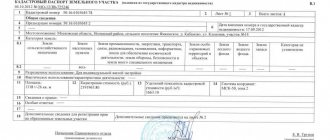An agreement for the exchange of equal apartments is an agreement under which the parties exchange real estate of the same value that belongs to them by right of ownership.
- Form and sample
- Free download
- Online viewing
- Expert tested
FILES
The subjects of an exchange agreement can be both individuals and legal entities. Thus, the parties to this agreement may be the owners of residential premises.
An agreement for the exchange of equivalent apartments must be drawn up in writing, since an oral conclusion of the transaction is possible only if the subject of the agreement in its value does not exceed the minimum wage ten times.
In this regard, below we will look at how such a document is drawn up and what nuances you should pay attention to when preparing it.
The concept of an agreement for the exchange of shares of an apartment
Peculiarities of registration between close relatives and with a minor
The need to exchange movable or immovable property appears quite often in our lives. This is convenient, since you do not need to draw up a purchase and sale agreement and pay a large tax. As for the exchange of shares of an apartment between close relatives, there are a number of nuances and features that we will consider in the article. We also focus on situations where a transaction is concluded with the participation of minors.
Expenses
When exchanging an apartment, the participant will bear the following expenses:
- Payment for the services of an intermediary if he contacts realtors.
- Payment for notary services if consent from the spouse to the transaction is required.
- Tax according to Art. 217 Tax Code of the Russian Federation.
- State registration fee.
In general, if expensive housing is exchanged, expenses can reach tens of thousands of rubles. The exact size must be calculated in each case separately. The housing exchange procedure can be carried out in different ways. The main thing is compliance with the law and attention at every stage of the transaction.
If you find an error, please select a piece of text and press Ctrl+Enter.
Barter agreement: concept
An exchange agreement is an act that confirms the completion of a bilateral transaction on the basis of legislation. Since an agreement for the exchange of an apartment between close relatives assumes that the owner of a share of real estate and those who want to receive this share in exchange for something are both sellers and buyers, rights and obligations arise for the two parties.
Today, an exchange agreement between close relatives is very popular, as it provides for more favorable taxation. When selling an apartment, a tax of 13% of its appraised value is paid by each party, and in the case of me - a one-time tax.
Receiving a tax deduction
There are nuances when buying real estate between relatives. As a standard, the buyer has the right to reimburse 13% of the income tax paid in the maximum established amount of 206 thousand rubles, as well as interest on the mortgage loan in the amount of up to 390 thousand. rub.
A special feature of concluding transactions is the legally established limitation on compensation payments. A tax deduction cannot be issued if the agreement is concluded between close relatives.
For example, a couple decided to buy an apartment from their husband’s sister. They are married, the apartment will be common property, regardless of who it is registered to. But only the spouse will be able to receive a tax deduction, since she is not a close relative of her husband’s sister.
The legislative framework
There is no separate law that would completely regulate this procedure, but there are a number of articles in different legislative acts.
- Article 567 of the Civil Code of the Russian Federation states that each party undertakes the obligation to place one product at the disposal of the other party. Each party is recognized as both a seller, obliging to sell, and a buyer, obliging to accept.
- Article 31 of the Civil Code of the Russian Federation. Explains the exchange procedure: if the exchanged property has the same value, the agreement is considered equal, if different, it is unequal and involves additional payment by one of the parties. The transaction is carried out only with real estate objects; it is impossible to exchange a share of an apartment for money, this will already be a purchase and sale agreement.
- Information letter dated September 24, 2002, No. 69. Explains the nuances regarding the number and names of objects subject to exchange.
Practice shows that the presence of many nuances that usually arise during such agreements requires recourse to real contracts already enshrined in court. You can find information on the official website of the district court.
How to complete a deal?
The legislative framework
For a citizen who decides to change the occupied residential premises to another, it is necessary to take into account a number of regulations. These include:
- Housing complex of the Russian Federation. They need to be followed in the event that there is an exchange of housing received under a social tenancy agreement.
- Civil Code of the Russian Federation. It provides the definition and terms of the exchange agreement used to draw up an exchange agreement for privatized apartments.
- Tax Code of the Russian Federation. They need to be followed if there is an exchange with an additional payment - and if the property has been owned for less than three years.
- RF IC. If the apartment is privatized or was purchased in a new building by a married couple, it will be jointly owned by the spouses (unless there are grounds to classify it as the personal property of one of them, as provided for in Article 36 of the RF IC). Consequently, only both spouses can dispose of it (including through exchange) with common consent.
- Federal Law “On State Registration of Real Estate”. This agreement describes the general principles according to which rights to real estate (including residential property) must be taken into account.
- Federal Law “On Guardianship and Trusteeship”. If the transaction affects the rights of minor homeowners, it must be approved in the prescribed manner by the guardianship authorities acting in accordance with the said normative act.
Important: This is only a general list of legislation. In specific cases, it may be necessary to use other regional or departmental regulations governing certain aspects of the exchange of real estate.
First steps
In order to exchange housing, you first need to find suitable exchange options. This can be done in the following ways:
- See what is offered on city and all-Russian websites of free advertisements or in the relevant newspapers.
- Contact acquaintances, relatives, friends.
- Contact realtors for help.
Alternatives
Having selected the appropriate option, you can proceed directly to the exchange. It can be done in the following ways:
- Through an exchange agreement. In this case, apartment owners simply transfer their housing to each other, formalizing the transfer with an appropriate agreement and registering newly arisen rights in the Unified State Register of Real Estate.
- Through a purchase and sale agreement. This method is practiced mainly when one apartment is exchanged for two smaller areas, or when the exchanged housing is clearly not comparable in price.
In this case, two sales contracts are drawn up. According to one of them, the owner sells his apartment, according to the second, he buys a new one from the person who acted as the buyer at the previous stage. The advantage of this option is speed, the disadvantage is a possible increase in real estate prices, due to which the purchase of a new apartment may fail. - Trade-in – exchanging an old apartment for housing in a new building. Such a transaction is carried out only through a real estate agency or development company.
Under this option, the owner of an old apartment enters into an agreement with a realtor for its sale, while simultaneously reserving housing in a new building at a fixed price. After this, the old apartment is sold, and the new living space is paid for from its cost. The advantage of this option is the high speed of exchange (in fact, it is enough to contact a realtor only once) and the relatively low price for a new apartment, but the disadvantage is the possibility of the deal being disrupted due to the developer’s failure to meet the deadline for putting the apartment into operation.
Mena
The barter agreement itself is regulated by Chapter 31 of the Civil Code of the Russian Federation. According to this agreement, each party undertakes to transfer ownership of some property that is the subject of the agreement to the counterparty in the transaction (in our case, residential premises).
The Civil Code indicates that barter relations are subject to the rules regarding purchase and sale, with each party acting simultaneously as a seller (for the property that previously belonged to it) and a buyer (for the property that it receives into ownership).
An agreement under which the rights to use housing are exchanged is similar to an exchange agreement. This option is used only for municipally owned apartments. There can be no exchange for them; there is only a change in the composition of persons who have entered into a social tenancy agreement.
Purchase and sale
The purchase and sale agreement provided for by the Civil Code of the Russian Federation is also similar to the exchange agreement. In it, one of the parties (the seller) transfers some property to the other (the buyer), and the other, in return, undertakes to pay a pre-agreed amount of money.
In relation to housing transactions, it is possible to use both counter agreements (when the seller then acts as a buyer in relation to another apartment that previously belonged to the buyer), and entire “chains”, when the money received from the sale of one apartment is used to purchase another, and the buyer himself then acts as a seller in the next transaction.
The purchase and sale agreement is governed by the rules provided for in Chapter 30 of the Civil Code of the Russian Federation. In cases where we are talking about purchasing housing from a developer or other commercial organization, and the buyer is an ordinary citizen, in addition to the norms of the Civil Code of the Russian Federation, the Law of the Russian Federation “On the Protection of Consumer Rights” may also be applied.
Neither an exchange agreement nor a housing purchase and sale agreement are themselves registered. However, a change in ownership that arose as a result of a concluded agreement must be registered in the Unified State Register of Real Estate through the bodies of Rosreestr in the manner prescribed by the Federal Law “On State Registration of Real Estate”.
Advantages and disadvantages
Each contract option has its own advantages and disadvantages.
- The advantages of buying and selling are usually the speed of completion: the buyer does not need to look for a long time for a suitable option for exchange, just pay the money - and you can, if desired, submit documents for state registration of the right on the same day.
- The downside is the need to have the entire amount of money on hand (except in cases where the seller allows installments or deferred payment), as well as possible difficulties with its transfer.
As for the exchange agreement, its main advantage is that it is free (except for cases when the apartment is changed with an additional payment).
A serious drawback is the need to select housing for exchange that is comparable in characteristics to the one being exchanged, as well as possible disputes with the other party regarding the value of the transferred property.
Required documents
In order to legally conduct a transaction, the parties will need the following package of documents:
- The contract itself. It is drawn up in three copies - one for each of the parties to the transaction, and another one will be stored in Rosreestr as confirmation of the grounds for changing ownership of the apartment.
- Passports and birth certificates of all apartment owners.
- Extract from the Unified State Register for each apartment. From 2021, this document replaces previous certificates of ownership and cadastral documentation. According to the Federal Law “On State Registration of Real Estate”, the extract can be used both in the form of a paper printout, certified by the registrar’s signature and the seal of the Rosreestr body, and in the form of a file certified by cryptographic methods.
- An extract from the house register about the number of persons living in each apartment.
- If the homeowners include minors, permission from the local guardianship authority will be required to complete the transaction.
- An extract from the personal account confirming the absence of debt on utility bills.
- If the apartment was purchased during marriage, then a copy of the marriage registration certificate and the consent of the second spouse to the transaction, certified by a notary. This document is not required if the second spouse is also a party to the transaction on one of the parties.
- If one of the parties acts not personally, but through an intermediary, then a power of attorney certified by a notary for the right to represent its interests.
Important: This list includes only basic documents. In specific situations, additional paperwork may be required.
For example, if the apartment belongs to a married couple who have settled their property relations under a notarial marriage contract, then this contract must be attached to the package of documents.
Advantages of drawing up an exchange agreement
The main advantage of the deal is reduced tax. After all, during the purchase and sale, each party pays 13% mandatory tax on the transaction. An exchange agreement between relatives involves a one-time payment of tax, which significantly saves the budget of each party.
The second advantage is a simplified procedure for establishing a new ownership right, which takes much less time to complete.
The third advantage is the functionality of the act itself. There is no official structure of the contract; the parties can specify in it all the nuances for maximum benefit - from additional payments to responsibilities.
Rights and obligations of the parties
This section is compiled to indicate the obligations of the Counterparties under this agreement. Interpretations of the wording of obligations may look different due to the current principle of freedom of contract in the Russian Federation. We, in turn, will try to highlight the main provisions that are prescribed in such documents:
The parties have the right to: • Demand the transfer of ownership of the residential premises specified in the clauses on the subject of the agreement. The parties undertake to: • Transfer to each other the apartments specified in the text of the document that correspond to the characteristics stated in the agreement. • Re-register ownership of apartments within 3 (three) days from the date of signing the agreement. • Fulfill your obligations in strict accordance with this agreement.
Form for drawing up an agreement for the exchange of shares of an apartment
The exchange agreement is drawn up on a white sheet of A4 paper in printed or written form. The sheet should be clean, smooth, not wrinkled. You need to use black or blue ink; in the case of a printed version, standard font and text size, without indents, additional characters or color highlights. The document is notarized, a specialist checks the correctness of the agreement from a legal point of view, and also finds out all the subtleties of the exchange, for example, to what extent the parties’ share is equivalent.
Standard information about the exchange agreement:
- passport details of the parties involved in the agreement;
- an accurate description of the objects of exchange;
- the amount of the difference in the cost of objects, if the contract provides for it;
- the procedure for carrying out the exchange procedure itself is indicated: the sequence of releasing square meters, extract, registration, etc.;
- special conditions, life situations, force majeure circumstances (if this happens) are listed;
- responsibility of the parties for fulfilling the terms of the agreement;
- actions in the event of force majeure, etc.
The structure looks like this: title - date and place of preparation - names of the parties - subject of the agreement - exchange procedure - responsibility of the parties - special provisions - conclusions.
The more detailed the exchange agreement is drawn up, the fewer problems and nuances will arise after its registration, in practice. All data on the share of real estate must be entered into the act: size, location, cadastral number, who it is registered with, etc.
Differences in registration between individuals and legal entities
Real estate exchange agreements can be concluded both between individuals and legal entities. The differences between such documents are minimal, but they still exist.
In the case of legal entities, contractual documents must contain information about the legal entity:
- date and place of registration;
- legal addresses;
- bank accounts through which additional payments will be made (in the case of unequal exchange), etc.
Account information is also necessary to pay the taxes and duties required in these cases.
Such contracts differ in how they are filled out. So, if the introductory part of a document for individuals contains only passport data of individuals, then in the case of a legal entity. persons, in addition to their name, it is necessary to indicate the details of the person (or persons) authorized to sign all the necessary papers and all related documents.
If for some reason, after drawing up an agreement, the authority to sign it is transferred to another person, a notarized power of attorney issued to that person is attached to the agreement.
Attention! Contractual documentation must necessarily include information about the duration of the contract, the rights, obligations and responsibilities (in case of violation) of the parties.
We invite you to read other useful publications by our experts, which talk about the nuances and rules of conducting exchange transactions with real estate such as:
- residential premises received under a social lease agreement;
- land;
- apartments located in different localities;
- housing exchanged only for the period of vacation.
Registration procedure
The drawn up agreement for the exchange of shares in apartments between relatives is not yet a final document authorizing the transaction. Participants must simultaneously contact Rosreestr and submit applications (a sample is offered by the institution). The registrar, along with the application, accepts a receipt for payment of the state fee. 30 days are given to verify the act. If any discrepancies or questions arise, the contract may be referred to the court for review.
Situations when a transaction is invalidated
There are a number of circumstances under which an exchange may be declared invalid by a court:
- A deliberately false transaction with the aim of concealing income.
- Lack of permission from the guardianship and trusteeship authorities.
- Participation of an incapacitated person or an elderly person.
- The emergence of new circumstances.
Responsibility of the parties
This section provides information about the circumstances under which the parties bear financial responsibility. Below we present the main provisions that may be written in the text of the document:
The parties bear financial liability in the event of non-fulfillment or improper fulfillment of obligations under this agreement. Counterparties are responsible for deficiencies in the alienated objects if they are identified after signing the agreement. If these shortcomings were discussed before signing the agreement, the parties do not bear responsibility.
Features and nuances
If you want to carry out the procedure for exchanging shares of apartments, you need to obtain the consent of the remaining owners. It is important to find out in advance how commensurate your share is with the other one offered for exchange. If not, find out the amount of the surcharge. To avoid paying tax, you can register a gift between relatives.
During the process, many nuances can arise. That is why it is important to involve a competent notary in the procedure, who knows all the “pitfalls” in advance and will be able to initially draw up a document that is correct, from a legal point of view. Contact our notary office to protect yourself from unequal transactions and fraud. Ivanov Boris Sergeevich is an experienced specialist who will help you draw up an exchange agreement quickly, legally and on the most favorable terms for you.
Treat your share of property responsibly, because, sadly, the world is full of people who want to deceive you. Trust not the words of relatives, but the recommendations of an independent specialist - a notary!
| Notarial action | Tariff according to NK | PTH services | ||
| 1 | Agreement of purchase and sale, exchange, gift of real estate (apartments, non-residential premises, land plots, residential buildings, etc.): not subject to mandatory notarization | Minors are exempt from collecting fees for the alienation of property or property in the event of alienation of real estate in proportion to their share in the right to the alienated real estate, taking into account the distribution of fees between the parties to the agreement. In this case, the amount of the benefit is calculated from half of the fee for UPTH, which is paid by the alienating party. For example, if, according to the agreement, ½ share is alienated by a minor, and ½ by an adult, then the benefit will be ¼ of the full amount of the fee for UPTH (half of the fee paid by the alienating party). | ||
| spouse, parents, children, grandchildren | ||||
| a) up to 10,000,000 rubles. on | 3,000 rub. plus 0.2% of the real estate valuation (transaction amount); | 6,600 rub. | ||
| b) over 10,000,000 rubles. | 23,000 rub. plus 0.1% of the transaction amount exceeding RUB 10,000,000, but not more than RUB 50,000; | 6,600 rub. in case of alienation of several real estate objects in one contract - for each subsequent object, starting from the 2nd +1000 rubles. At the same time, the total amount of UPTH under the contract cannot exceed 13,600 rubles. | ||
| to other persons depending on the amount of the contract: | ||||
| a) up to 1,000,000 rub. on | 3,000 rub. plus 0.4% of the transaction amount; | 6,600 rub. in case of alienation of several real estate objects in one contract - for each subsequent object, starting from the 2nd +1000 rubles. At the same time, the total amount of UPTH under the contract cannot exceed 13,600 rubles. | ||
| b) over 1,000,000 rubles. up to 10,000,000 rub. on | 7,000 rub. plus 0.2% of the transaction amount exceeding RUB 1,000,000; | 6,600 rub. in case of alienation of several real estate objects in one contract - for each subsequent object, starting from the 2nd +1000 rubles. At the same time, the total amount of UPTH under the contract cannot exceed 13,600 rubles. | ||
| c) over 10,000,000 rubles. | 25,000 rub. plus 0.1% of the transaction amount exceeding RUB 10,000,000, and in case of alienation of residential property. premises (apartments, rooms, residential buildings) and land plots occupied by residential buildings - no more than 100,000 rubles. | 6,600 rub. In case of alienation of several real estate objects in one contract - for each subsequent object, starting from the 2nd +1000 rubles. At the same time, the total amount of UPTC under the contract cannot exceed 13,000 rubles. | ||
| 2 | Agreement for the purchase and sale of a share in the right of common ownership to another person, agreement for the purchase and sale of real estate owned by a minor or a citizen recognized as having limited legal capacity (subject to mandatory notarization) | 0.5% of the contract amount, but not less than 300 rubles. and no more than 20,000 rubles. | 6,000 rub. Minors are exempt from collecting fees for the alienation of property or property in the event of alienation of real estate in proportion to their share in the right to the alienated real estate, taking into account the distribution of fees between the parties to the agreement. In this case, the amount of the benefit is calculated from half of the fee for UPTH, which is paid by the alienating party. For example, if, according to the agreement, ½ share is alienated by a minor, and ½ by an adult, then the benefit will be ¼ of the full amount of the fee for UPTH (half of the fee paid by the alienating party). | |
Make an appointment
How is it drawn up for the exchange of real estate for similar property?
Drawing up a real estate exchange agreement implies a clear understanding of the structure of the exchange process itself. To correctly draw up such an agreement, you should decide on the following points:
- Subject of the agreement. This can be either private property - houses, apartments, cottages and other residential and non-residential premises that are privately owned, as well as real estate owned by any organizations or enterprises - household or warehouse space, office space, workshops, etc. (we talked about how to correctly conclude an agreement for the exchange of residential premises between owners here).
When drawing up an exchange agreement, it is necessary to clearly state all the features of the real estate being exchanged (location of the object, its condition, square footage, etc.). This will significantly simplify the exchange process and avoid possible disagreements between the parties. - Drafting rules, important points and elements. As mentioned above, the legislation does not provide for a clearly defined form for an exchange agreement. For this reason, the basis for its preparation is the fact of counter-purchase and sale.
In this case, the following data must be included in the contract: the cadastral number of the objects, the area of the exchanged objects (with the attachment of floor plans or copies thereof), if at least one of the exchanged objects includes a land plot adjacent to it, it is necessary to indicate its target purpose (read more about the nuances of drawing up an exchange agreement in which the object is a land plot here).The estimated cost of the objects is also indicated, which allows you to determine whether one of the parties needs to make an additional payment.
- Determination of the contract price. If the exchange agreement does not stipulate the value of the objects to be exchanged, then it is assumed that they are of equal value. Responsibilities for paying the costs of preparing the necessary documentation are agreed upon by the parties and then specified in the contract. This is consistent with the requirements set out in paragraph 1 of Article 568 of the Civil Code of the Russian Federation.
If the value of the exchanged objects is indicated in the contract, their assessment must be carried out exclusively by government organizations authorized to carry out such assessment. In this case, this also includes a clause indicating an additional payment, the amount of which corresponds to the difference in the estimated value of the exchanged objects.Important! All assessment documentation must be certified by the seals and stamps of the relevant organizations.
Form requirements
The housing exchange agreement is drawn up in writing. Notarization is carried out at the request of the participants.
Contents : what is included in the contract? Participants indicate the individual characteristics of the exchanged apartments, things, the amount of additional payment, the procedure for making it, the timing of relocation, and other details important for the parties.
Essential conditions:
- subject: which particular apartment (indicating the address, technical characteristics) is changed to another (also indicating individual characteristics) or things (with individualization);
- amount of surcharge.
Without specifying these conditions, the agreement is considered not concluded.
The exchange agreement itself and the transfer of ownership of the participants are subject to mandatory state registration
pros
Reducing the risk of fraud on both sides. Under such an agreement, the participants immediately receive what they want with a guarantee; whereas in case of counter purchase and sale, the terms of registration of transactions do not coincide, which is successfully used by swindlers.
There are a number of fraudulent schemes, as a result of which a person is left without an apartment and without money. This happens especially often when citizens, in order to save money, ignore the services of realtors and try to make transactions on their own.
When a person sells an apartment to another person and intends to buy from a third person, this is also associated with risk . Money is subject to inflation, and in recent decades we have encountered cases where it was sudden and rapid.
In the nineties, in 2008, 2014, we had situations where, shortly after the sale, it was impossible to buy housing of the required quality with the proceeds from a previously sold apartment.
On the other hand, apartments during a crisis are difficult to sell for an acceptable amount, since buyers do not have enough cash for this.
When moving, a person is faced with the problem of adequately assessing the purchased housing : he does not know enough about the features of life in another city. If you rely on prices published in newspapers, you may get a different situation on the spot.
Creditors with the help of bailiffs and debt collectors can claim the money received from a purchase and sale transaction: tracking such a transaction is not difficult, while the only home a person cannot legally take away .
Finally, there is a category of citizens for whom it is simply impossible to resist spending cash when it is already in their hands. An exchange agreement with an additional payment allows you to “settle” the listed problems.
Tax benefit . If a party sells housing purchased less than three years ago, he is obliged to include income from the sale in the year-end declaration and pay income tax on the declared amount.
In an exchange transaction, tax is paid only on the additional payment, which, by agreement of the participants, can not be indicated in the document or written down in the text in a symbolic amount, but the real amount can be transferred from hand to hand.
Such an agreement is an ideal solution to housing problems between relatives . With age, the parental family has shrunk to two people; she no longer needs a large apartment, for which she also has to pay ever-increasing utility costs. Children got married, grandchildren appeared, but for now young families live in a modest two-room apartment or studio.
The difficulties of relocation and temporary residence are eliminated. For citizens with a family or valuable property, the sale of apartments threatens the prospect of temporary rental housing while they search for a suitable purchase option. If the search drags on, this will lead to a long-term deterioration in the standard of living. The barter agreement eliminates this problem.
Instructions for state registration
Where to contact?
If the parties wish to make an exchange, the parties must contact the territorial bodies of the Service of those registration districts in whose territories the objects to be exchanged are located.
When the territorial bodies of the Service receive such a request, these bodies make a corresponding entry in the Unified State Register of Real Estate about the receipt of such a request, indicating the existence of a legal claim in relation to the real estate objects specified in the exchange agreement.
Note! If real estate is exchanged for movable property, in addition to the territorial bodies of the Service, you must also contact the state body in which the movable property is registered.
For example, if the movable property is a car, you must contact the MREO of the territorial district where the car was registered.
Required Documentation
To carry out state registration of an exchange agreement of the real estate-real estate type, the parties to the agreement must provide the following documents:
- Statement from each party to the contract. The form for such an application is issued directly by the territorial body of the Service.
- Document confirming payment for registration.
- For individuals (including authorized representatives) documents that prove their identity.
- For legal entities, documents that confirm constituent rights, as well as relevant documents that confirm the inclusion of a legal entity in the Unified State Register of Legal Entities and the registration of a legal entity as a taxpayer (indicating the TIN).
- Documents that confirm the authority of the representative - a power of attorney; for trustees, guardians, as well as adoptive parents - relevant certificates.
- Exchange agreement in a number of copies equal to the number of participating parties + one copy that will be placed in the file.
- Title documents of the person who alienates the real estate - certificate, agreement, etc.
- A document that confirms the transfer of real estate.
- Documents that confirm the fulfillment of the terms of the contract (if the transaction was completed under the terms of Article 157 of the Civil Code of the Russian Federation).
- Cadastral passport for residential premises, certified by the authority that issued it.
- Consent of guardianship and guardianship authorities (only in appropriate cases).
- Other documentation that confirms the existence of grounds for executing the transaction.
To carry out state registration of an exchange agreement of the real estate-movable property type, it is necessary to provide the above authorities with almost the same list of documents as indicated above, with the only difference being that the party that is the owner of the movable property that is the subject of the exchange must provide the relevant documents, confirming the rights of ownership of this property, certified by the relevant authorities.
In the case of state registration of an exchange agreement between individuals, documents relating exclusively to legal entities should be excluded from the above list. If an agreement between legal entities is being registered, all of the above documentation must be provided, with the exception of those documents that are not required in any particular case.
Attention! All of the above documents must be provided both in original and in copies in the amount of one copy for each party to the contract plus one copy for inclusion in the file. All documentation (and copies) without exception must be notarized.
Cost and terms
From January 1, 2017, the cost of state registration of exchange contracts is set at 2,000 rubles . Additionally, other actions related to state registration may be paid. The cost of such actions is individual in each individual case.
The maximum period for completing registration is 7 working days immediately from the date of application and submission of the corresponding application.
Minuses
The exchange option takes much longer to search for than the purchase and sale option. This is especially true for non-resident exchanges: the probability that a resident of the locality you need needs to move to your city is in some cases close to zero.
to agree on the amount of additional payment for participants.
In some cases, it is influenced by non-market factors, for example, the need for an urgent move.
It is difficult to establish an adequate market value of the exchanged apartments: published advertisements for the sale of similar housing express only the desires of sellers and buyers. The prices of real transactions remain behind the scenes.
Exchange, compared to buying and selling, narrows the choice . The parties have to move not to the optimal area of the city from their point of view, but to the one where the exchange is offered.
If a participant purchases housing for the first time, the purchase allows her to make a tax deduction of the personal income tax base in the amount of the transaction amount. In the option under consideration, she will receive such a deduction only from the amount of the additional payment.
An exchange agreement gives both participants additional rights compared to the sale and purchase. Within three years after its conclusion, any of the parties can change their mind and make claims against the counterparty, seeking not only its cancellation, but also reimbursement of their expenses.
After weighing all the pros and cons, make a decision.
What is it needed for?
Why is it necessary to conclude an apartment exchange contract with an additional payment?
One party enters into an agreement to improve living conditions with minimal costs and inconvenience.
The second side sees the benefit from it in the opportunity to receive a significant amount of money at a time and reduce utility bills when living in a smaller apartment.
There are pros and cons to the acquisition/sale of housing by concluding such a contract, instead of a purchase and sale transaction.
Find out what documents are required to exchange an apartment, as well as whether it is possible to exchange a room for a house and land, from our articles.








